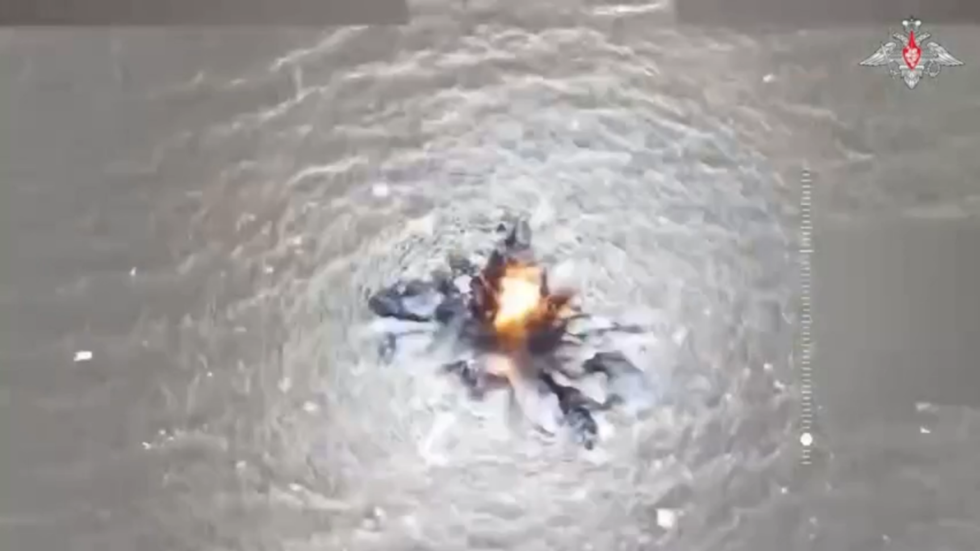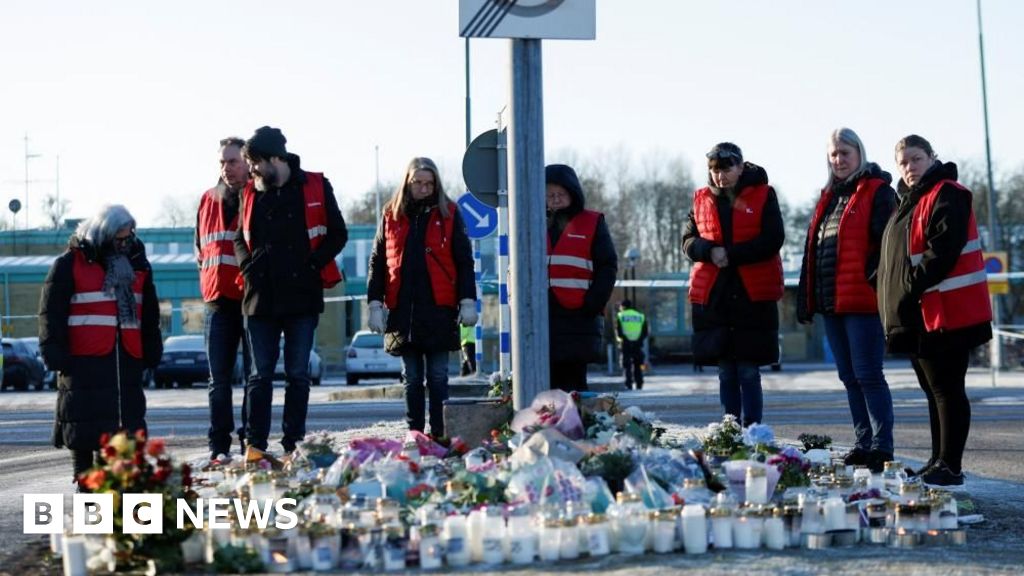When Chinese President Xi Jinping last visited the European Union in 2019, the world was a simpler place. No one had heard of COVID-19, Russia's full-scale invasion of Ukraine was far off and Brussels and Beijing were eyeing a trade and investment deal.
Relations are far frostier now: the deal is on ice after an exchange of sanctions, and an increasingly hawkish EU has brewed a list of new laws to decrease dependence on China.
Xi begins his trip in France on Sunday, before heading to Serbia and Hungary. And while he may feel the heat from the EU's toughened stance in Paris, the welcome will be warmer in Belgrade and Budapest, both seen as more sympathetic toward Moscow and Beijing.
China's Xi Jinping arrives in France
France: Ukraine gets top billing, but will Xi listen?
French President Emmanuel Macron will host his Chinese counterpart in Paris on Monday, with European Commission President Ursula von der Leyen also invited. The French and Chinese leaders will then travel to Macron's childhood holiday destination in the Pyrenees mountains. Bucolic setting aside, a source in the French president's office said the talks will be "very political" — dominated by divisions on Russia's war in Ukraine.
France has imposed successive rounds of sanctions on Moscow through the EU since 2022, while China has fostered closer relations with Russia."The Chinese government has always maintained an objective, neutral and balanced stance and does not favor any party," Lu Shaye, China's ambassador to France, told Chinese media earlier this week.
The French government source said Macron will "encourage China, as one of Russia's main partners, to use the levers at its disposal to change Moscow's calculation and contribute to a resolution of the conflict."
 Macron aims to 'encourage' China to use its influence on Russia to stop the war in UkraineImage: Andrii Marienko/AP/picture alliance
Macron aims to 'encourage' China to use its influence on Russia to stop the war in UkraineImage: Andrii Marienko/AP/picture alliance But the push from Paris may fall on deaf ears. Xi agreed to call Ukraine's president after Macron visited China last year, but little resulted.
Emmanuel Lincot, a researcher at the Catholic Institute of Paris and the Institute of International and Strategic Relations, told DW that as the EU's only nuclear power, Beijing views France as important. But for Lincot, a planned visit to China by Russia's president later this month proves Beijing's immovability.
"There won't be one iota of change in terms of Xi Jinping's approach to big international questions," he said.
EU-China trade remains a sticking point
Xi's time in France will also see him sign new business deals, including reported plans for fresh Chinese orders with French aviation giant Airbus. The EU and China are among each other's biggest trading partners — but European imports significantly outweigh exports to China, and Brussels has often alleged unfair market access.
Last year, the EU opened a probe into Chinese electric vehicle subsidies, slammed by Beijing as "naked protectionism."
Isabelle Feng, a researcher at the French-language Free University of Brussels, said she expects EU-China trade to decrease "very, very slowly” amid these strained ties.
"Changing global supply chains takes time," Feng said.
China invests billions in Serbia
After France, Xi heads to Serbia, where timing is everything. His arrival coincides with the 25th anniversary of US bombs hitting the Chinese Embassy in Belgrade as part of NATO's aerial campaign to stop the then-Federal Republic of Yugoslavia's ethnic cleansing campaign against Kosovar Albanians.
25th anniversary of the NATO bombing of Yugoslavia
Washington apologized for the incident, calling it an accident, and paid compensation for the Chinese nationals killed. But many in China still believe the embassy was targeted deliberately.
"For China, it plays a role of a historical moment in which the 'big bad West' harmed China directly. It has created a lot of emphasis on the narrative that there is a need for reconstructing the global order," said Stefan Vladisavljev, a Belgrade-based researcher with the Foundation BFPE for a Responsible Society. "There is a joint victimhood moment."
Is a Chinese steel mill polluting cities in Serbia?
Officially an EU membership candidate, Serbia and other Western Balkan nations sit in a geopolitical hot spot where different powers are competing for influence. Though the EU is Serbia's top economic partner, some €10.3 billion ($11 billion) in Chinese investments flowed into the country from 2009 to 2021, according to the Balkan Investigative Reporting Network.
"There has been some positive economic impact to the Chinese presence in Serbia, but also what we should discuss — and we are not doing that currently — are those negative or corrosive aspects of the presence of the Chinese capital. We are talking mostly about environmental impact," said Vladisavljev.
Hungary: A friend on the inside?
Xi will wrap up his Europe trip in Hungary, the EU member most often at odds with Brussels. The Chinese Foreign Ministry has said the two states have "deepened political mutual trust" in recent years. But researcher Isabelle Feng describes the trend differently.
"Hungary is China's Trojan horse in the EU," she told DW. Budapest has in the past blocked EU statements on Hong Kong, and delayed EU aid for Ukraine and sanctions on Russia.
 Xi will wrap up his Europe trip in Hungary, meeting with Hungarian Prime Minister Viktor Orban (left)Image: Andrea Verdelli/AFP/Getty Images
Xi will wrap up his Europe trip in Hungary, meeting with Hungarian Prime Minister Viktor Orban (left)Image: Andrea Verdelli/AFP/Getty ImagesHungarian Foreign Minister Peter Szijjarto told Chinese media outlet The Global Times on Tuesday that the EU's probe into Chinese electric vehicle subsidies was "really dangerous and harmful," and that his country will be "very much engaged" in improving EU-China ties.
Feng said this EU disunity is useful for Beijing. "China's strategy toward the EU for 20 years has always been to divide and conquer," she explained.
And for Emmanuel Lincot, Xi's move to court Hungary and snub the EU capital sends a message: "He wants to work with a Europe which is disenchanted with Brussels — a Europe which plays Moscow's cards."
Edited by: Cristina Burack

 9 months ago
35
9 months ago
35







